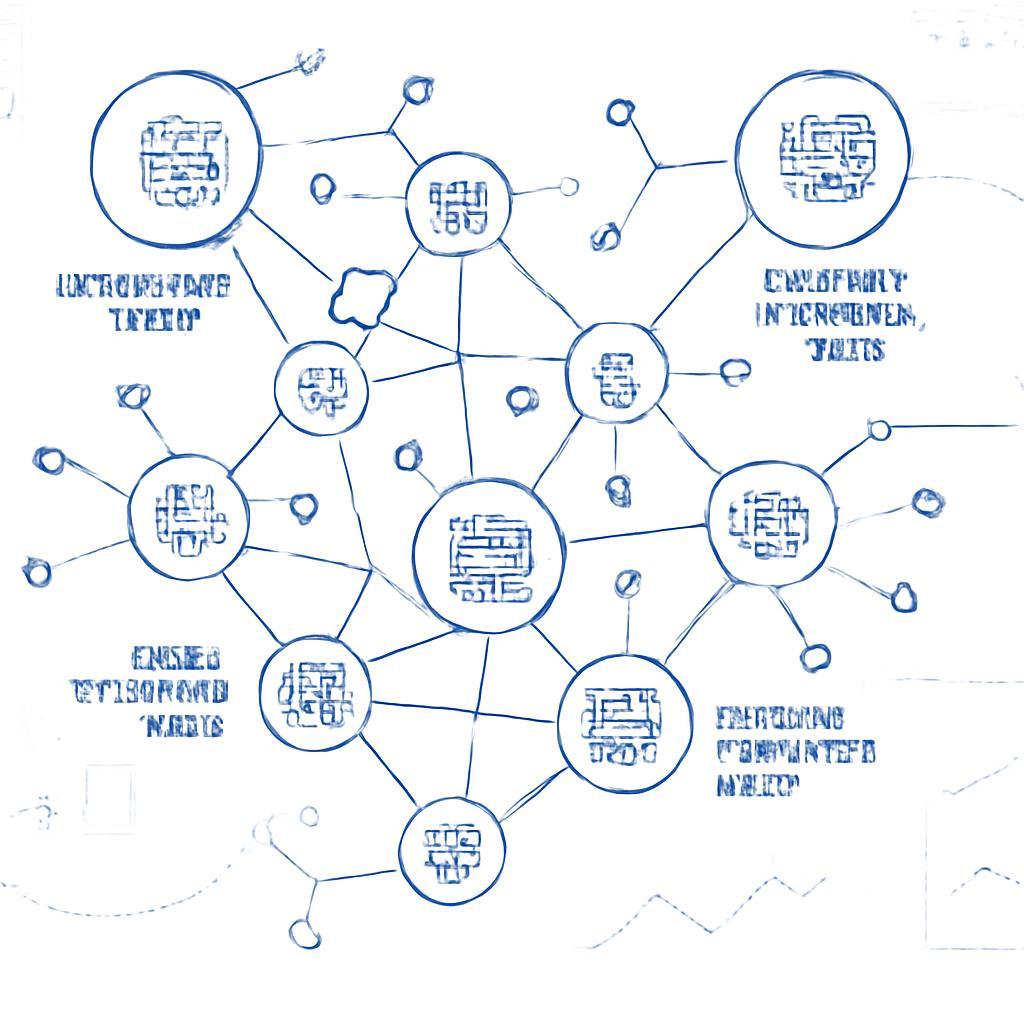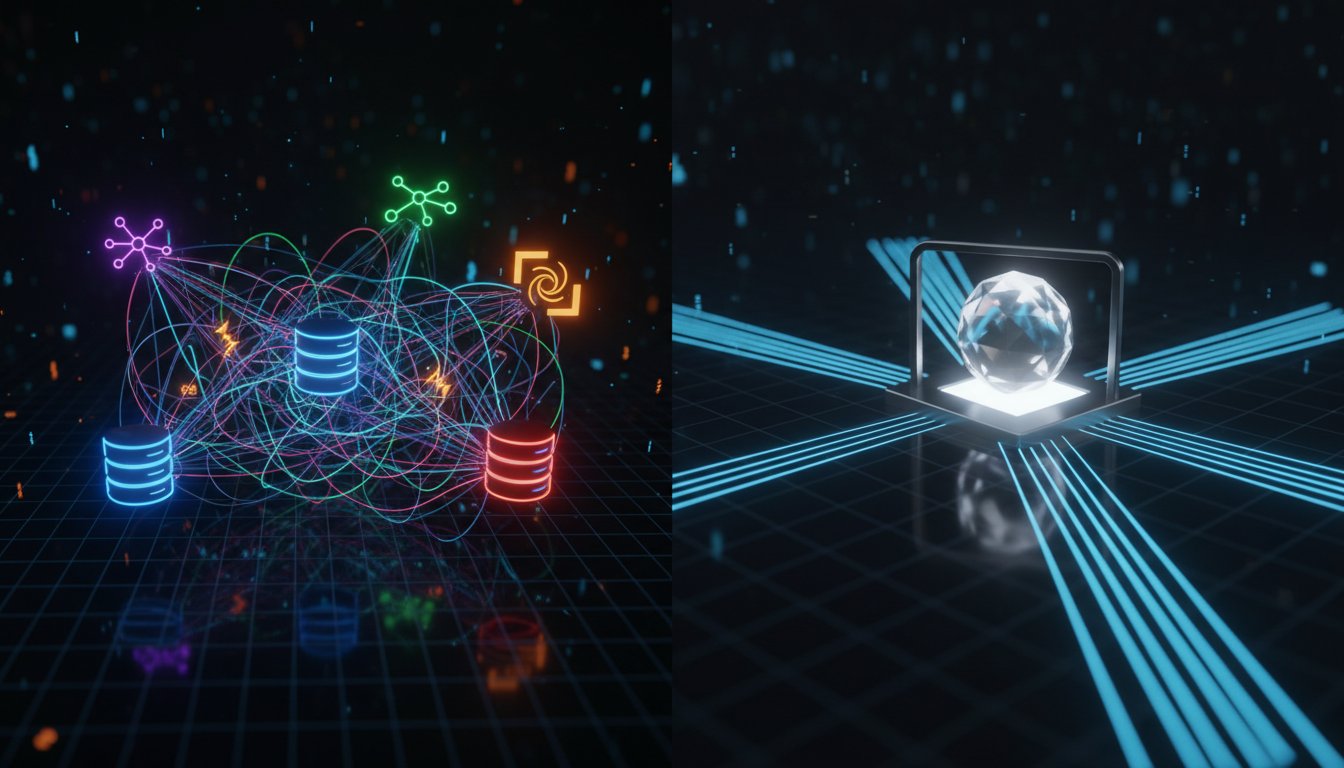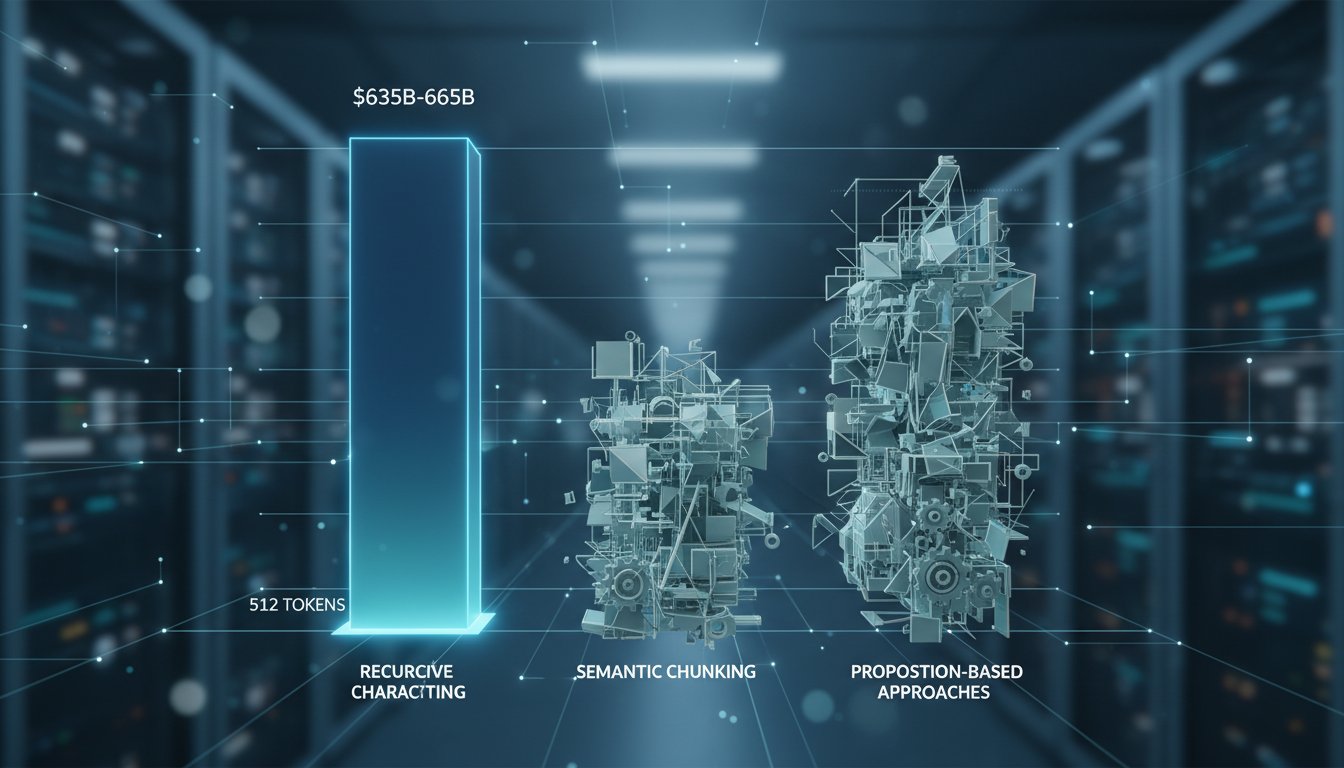When OpenAI quietly released their Swarm framework on GitHub, most developers dismissed it as just another experimental tool. But beneath its deceptively simple API lies a paradigm shift that could revolutionize how we build enterprise RAG systems. While traditional RAG architectures struggle with complex, multi-step queries that require different types of reasoning, Swarm introduces a multi-agent approach that can handle everything from document analysis to code generation within a single, coordinated system.
The challenge with current RAG implementations isn’t just about retrieval accuracy—it’s about orchestration. Enterprise queries often require multiple specialized capabilities: one agent to understand context, another to retrieve relevant documents, a third to synthesize information, and yet another to format responses appropriately. Until now, building such systems required complex orchestration layers that were brittle, hard to maintain, and prone to failure at scale.
Swarm changes this equation by providing a lightweight, production-ready framework for building coordinated agent systems that can handle the complexity of real-world enterprise RAG scenarios. In this comprehensive guide, we’ll walk through building a complete multi-agent RAG system using Swarm, from basic setup to advanced production patterns that can handle thousands of concurrent users.
By the end of this article, you’ll understand how to leverage Swarm’s agent handoff mechanisms, implement proper error handling and recovery, and deploy a system that scales horizontally while maintaining consistency across agent interactions.
Understanding Swarm’s Multi-Agent Architecture for RAG
Swarm fundamentally reimagines RAG by treating different aspects of the retrieval and generation process as specialized agents that can hand off tasks to each other. Unlike monolithic RAG systems where a single model handles everything, Swarm allows you to create specialized agents for document parsing, query understanding, retrieval, synthesis, and response formatting.
The framework operates on two core primitives: Agents and handoffs. An Agent encapsulates instructions, functions, and the ability to hand off conversations to other agents. Handoffs enable seamless transitions between agents based on context, creating a natural flow that mirrors how human experts might collaborate on complex queries.
Core Components of a Swarm RAG System
A production Swarm RAG system typically consists of several specialized agents:
Query Router Agent: Analyzes incoming queries to determine intent and route to appropriate specialist agents. This agent handles the critical first step of understanding whether a query requires simple factual retrieval, complex analysis, or multi-document synthesis.
Document Retrieval Agent: Specialized in embedding generation and vector similarity search. This agent maintains connections to your vector databases and implements sophisticated retrieval strategies including hybrid search and re-ranking.
Context Synthesis Agent: Responsible for combining retrieved documents into coherent context windows. This agent handles deduplication, relevance filtering, and context window optimization to ensure the generation agent receives the most useful information.
Response Generation Agent: Focused solely on generating high-quality responses based on synthesized context. This agent can be fine-tuned for specific output formats and maintains consistency in tone and style.
Quality Assurance Agent: Validates responses for accuracy, completeness, and adherence to company guidelines before final delivery.
Setting Up Your Swarm Environment
Before diving into agent creation, ensure your environment is properly configured:
import swarm
from swarm import Swarm, Agent
import openai
from typing import Dict, List, Optional
import logging
# Configure logging for production monitoring
logging.basicConfig(level=logging.INFO)
logger = logging.getLogger(__name__)
# Initialize Swarm client
client = Swarm()
# Configure OpenAI client for embeddings and completions
openai.api_key = "your-api-key"
The beauty of Swarm lies in its simplicity—you don’t need complex orchestration frameworks or message queues to coordinate between agents. The framework handles agent-to-agent communication through its built-in handoff mechanism.
Building Your First Multi-Agent RAG Pipeline
Let’s start by creating a basic multi-agent RAG system that demonstrates the core concepts before scaling to production complexity.
Creating the Query Router Agent
The Query Router Agent serves as the entry point for all user queries. Its primary responsibility is analyzing the incoming query and determining which specialist agent should handle the request:
def analyze_query_intent(query: str) -> str:
"""Analyze query to determine appropriate routing."""
# Implementation would include intent classification logic
# For simplicity, using basic keyword matching
if "compare" in query.lower() or "vs" in query.lower():
return "comparison_agent"
elif "how to" in query.lower() or "tutorial" in query.lower():
return "tutorial_agent"
else:
return "general_retrieval_agent"
query_router = Agent(
name="QueryRouter",
instructions="""
You are a query routing specialist. Analyze incoming queries to determine
the appropriate specialist agent. Consider query complexity, intent, and
required capabilities when making routing decisions.
""",
functions=[analyze_query_intent]
)
Implementing the Document Retrieval Agent
The Document Retrieval Agent handles all aspects of document search and retrieval. This agent maintains connections to your vector databases and implements sophisticated search strategies:
import chromadb
from sentence_transformers import SentenceTransformer
class DocumentRetriever:
def __init__(self):
self.chroma_client = chromadb.Client()
self.encoder = SentenceTransformer('all-MiniLM-L6-v2')
self.collection = self.chroma_client.get_or_create_collection("documents")
def retrieve_documents(self, query: str, top_k: int = 5) -> List[Dict]:
"""Retrieve relevant documents using hybrid search."""
try:
# Generate query embedding
query_embedding = self.encoder.encode([query]).tolist()[0]
# Perform vector similarity search
results = self.collection.query(
query_embeddings=[query_embedding],
n_results=top_k
)
return [
{
"content": doc,
"metadata": meta,
"distance": dist
}
for doc, meta, dist in zip(
results['documents'][0],
results['metadatas'][0],
results['distances'][0]
)
]
except Exception as e:
logger.error(f"Document retrieval failed: {e}")
return []
retriever = DocumentRetriever()
def search_documents(query: str) -> str:
"""Search for relevant documents and return formatted results."""
documents = retriever.retrieve_documents(query)
if not documents:
return "No relevant documents found. Please try a different query."
formatted_results = "\n\n".join([
f"Document {i+1}:\n{doc['content'][:500]}..."
for i, doc in enumerate(documents[:3])
])
return f"Found {len(documents)} relevant documents:\n\n{formatted_results}"
retrieval_agent = Agent(
name="DocumentRetriever",
instructions="""
You are a document retrieval specialist. Your job is to find the most
relevant documents for user queries using advanced search techniques.
Always provide context about the quality and relevance of retrieved documents.
""",
functions=[search_documents]
)
Creating the Context Synthesis Agent
The Context Synthesis Agent takes retrieved documents and creates optimized context for the generation agent. This agent handles deduplication, relevance filtering, and context window management:
def synthesize_context(documents: str, query: str) -> str:
"""Synthesize retrieved documents into optimized context."""
# Parse documents and remove duplicates
doc_list = documents.split("Document ")
# Remove empty entries and clean up
clean_docs = [doc.strip() for doc in doc_list if doc.strip()]
# Create synthesized context
context = f"""Based on the query: "{query}"
Relevant information from knowledge base:
{chr(10).join([f"Source {i+1}: {doc[:300]}..." for i, doc in enumerate(clean_docs[:3])])}
Synthesis complete. This context provides comprehensive information to answer the user's query."""
return context
synthesis_agent = Agent(
name="ContextSynthesizer",
instructions="""
You are a context synthesis specialist. Your job is to take retrieved
documents and create optimized, coherent context for response generation.
Remove redundancy, highlight key information, and ensure context fits
within token limits.
""",
functions=[synthesize_context]
)
Implementing Advanced Agent Handoff Patterns
The real power of Swarm becomes apparent when implementing sophisticated handoff patterns that allow agents to collaborate seamlessly on complex queries.
Conditional Handoffs Based on Query Complexity
Swarm enables conditional handoffs where agents can decide which specialist to involve based on the complexity or nature of the query:
def determine_next_agent(query: str, retrieved_docs: str) -> Agent:
"""Determine which agent should handle the next step."""
doc_count = len(retrieved_docs.split("Document ")) - 1
if doc_count == 0:
# No documents found, hand off to fallback agent
return fallback_agent
elif doc_count > 5:
# Complex query with many documents, use advanced synthesis
return advanced_synthesis_agent
else:
# Standard processing
return synthesis_agent
# Enhanced retrieval agent with smart handoffs
enhanced_retrieval_agent = Agent(
name="EnhancedRetriever",
instructions="""
You are an intelligent document retrieval agent. After retrieving documents,
analyze the results and determine the most appropriate next step in the pipeline.
Consider document quantity, relevance, and query complexity when making handoff decisions.
""",
functions=[search_documents, determine_next_agent]
)
Error Handling and Recovery Patterns
Production RAG systems must handle failures gracefully. Swarm allows you to implement sophisticated error recovery through agent handoffs:
def handle_retrieval_failure(error_context: str) -> str:
"""Handle retrieval failures with fallback strategies."""
logger.warning(f"Primary retrieval failed: {error_context}")
# Attempt alternative retrieval strategies
# This could include broader search terms, different embeddings, etc.
return "Attempting alternative retrieval strategies..."
fallback_agent = Agent(
name="FallbackHandler",
instructions="""
You are a fallback recovery agent. When primary retrieval fails,
implement alternative strategies to find relevant information or
provide helpful guidance to users.
""",
functions=[handle_retrieval_failure]
)
Multi-Step Query Processing
Complex enterprise queries often require multiple steps of processing. Swarm excels at coordinating these multi-step workflows:
def process_complex_query(query: str) -> str:
"""Process queries that require multiple steps."""
steps = [
"1. Analyzing query intent and complexity",
"2. Retrieving relevant documents from multiple sources",
"3. Synthesizing information across documents",
"4. Generating comprehensive response",
"5. Quality validation and formatting"
]
return f"Processing complex query through {len(steps)} steps: {', '.join(steps)}"
complex_query_agent = Agent(
name="ComplexQueryProcessor",
instructions="""
You specialize in handling complex, multi-part queries that require
coordinated processing across multiple agents. Break down complex
requests into manageable steps and coordinate with specialist agents.
""",
functions=[process_complex_query]
)
Production Deployment and Scaling Strategies
Deploying Swarm RAG systems in production requires careful consideration of performance, reliability, and scalability.
Horizontal Scaling with Agent Pools
Swarm agents can be deployed across multiple instances to handle high concurrency:
import asyncio
from concurrent.futures import ThreadPoolExecutor
class SwarmRAGService:
def __init__(self, max_workers: int = 10):
self.executor = ThreadPoolExecutor(max_workers=max_workers)
self.client = Swarm()
async def process_query_async(self, query: str) -> str:
"""Process queries asynchronously for better throughput."""
loop = asyncio.get_event_loop()
return await loop.run_in_executor(
self.executor,
self._process_query_sync,
query
)
def _process_query_sync(self, query: str) -> str:
"""Synchronous query processing for thread executor."""
try:
response = self.client.run(
agent=query_router,
messages=[{"role": "user", "content": query}]
)
return response.messages[-1]["content"]
except Exception as e:
logger.error(f"Query processing failed: {e}")
return "I apologize, but I encountered an error processing your request."
# Initialize service
rag_service = SwarmRAGService(max_workers=20)
Monitoring and Observability
Production systems require comprehensive monitoring to track agent performance and system health:
import time
from functools import wraps
def monitor_agent_performance(func):
"""Decorator to monitor agent function performance."""
@wraps(func)
def wrapper(*args, **kwargs):
start_time = time.time()
try:
result = func(*args, **kwargs)
duration = time.time() - start_time
logger.info(f"Agent function {func.__name__} completed in {duration:.2f}s")
return result
except Exception as e:
duration = time.time() - start_time
logger.error(f"Agent function {func.__name__} failed after {duration:.2f}s: {e}")
raise
return wrapper
# Apply monitoring to critical functions
search_documents = monitor_agent_performance(search_documents)
synthesize_context = monitor_agent_performance(synthesize_context)
Caching and Performance Optimization
Implement intelligent caching to reduce latency and improve user experience:
import hashlib
from functools import lru_cache
class QueryCache:
def __init__(self, max_size: int = 1000):
self.cache = {}
self.max_size = max_size
def get_cache_key(self, query: str) -> str:
"""Generate cache key for query."""
return hashlib.md5(query.lower().encode()).hexdigest()
def get(self, query: str) -> Optional[str]:
"""Retrieve cached response if available."""
key = self.get_cache_key(query)
return self.cache.get(key)
def set(self, query: str, response: str):
"""Cache response for future use."""
if len(self.cache) >= self.max_size:
# Simple LRU eviction
oldest_key = next(iter(self.cache))
del self.cache[oldest_key]
key = self.get_cache_key(query)
self.cache[key] = response
# Global cache instance
query_cache = QueryCache(max_size=5000)
Swarm’s multi-agent architecture represents a fundamental shift in how we approach enterprise RAG systems. By breaking down complex retrieval and generation tasks into specialized agents that can seamlessly hand off work to each other, we create systems that are more maintainable, scalable, and capable of handling the nuanced requirements of real-world applications.
The framework’s simplicity doesn’t compromise its power—with just a few dozen lines of code, you can create sophisticated agent networks that rival complex orchestration systems. As enterprises continue to demand more sophisticated AI capabilities, Swarm provides a path forward that balances simplicity with the flexibility needed for production deployment.
Ready to transform your RAG architecture with Swarm? Start by implementing the basic multi-agent pattern we’ve outlined, then gradually add the advanced features like conditional handoffs and performance monitoring. The modular nature of Swarm means you can evolve your system incrementally, adding new specialist agents as your requirements grow. Visit the Swarm GitHub repository to access the complete framework and begin building your next-generation RAG system today.




